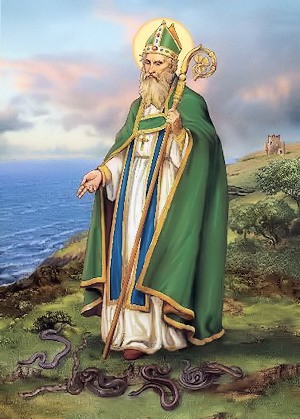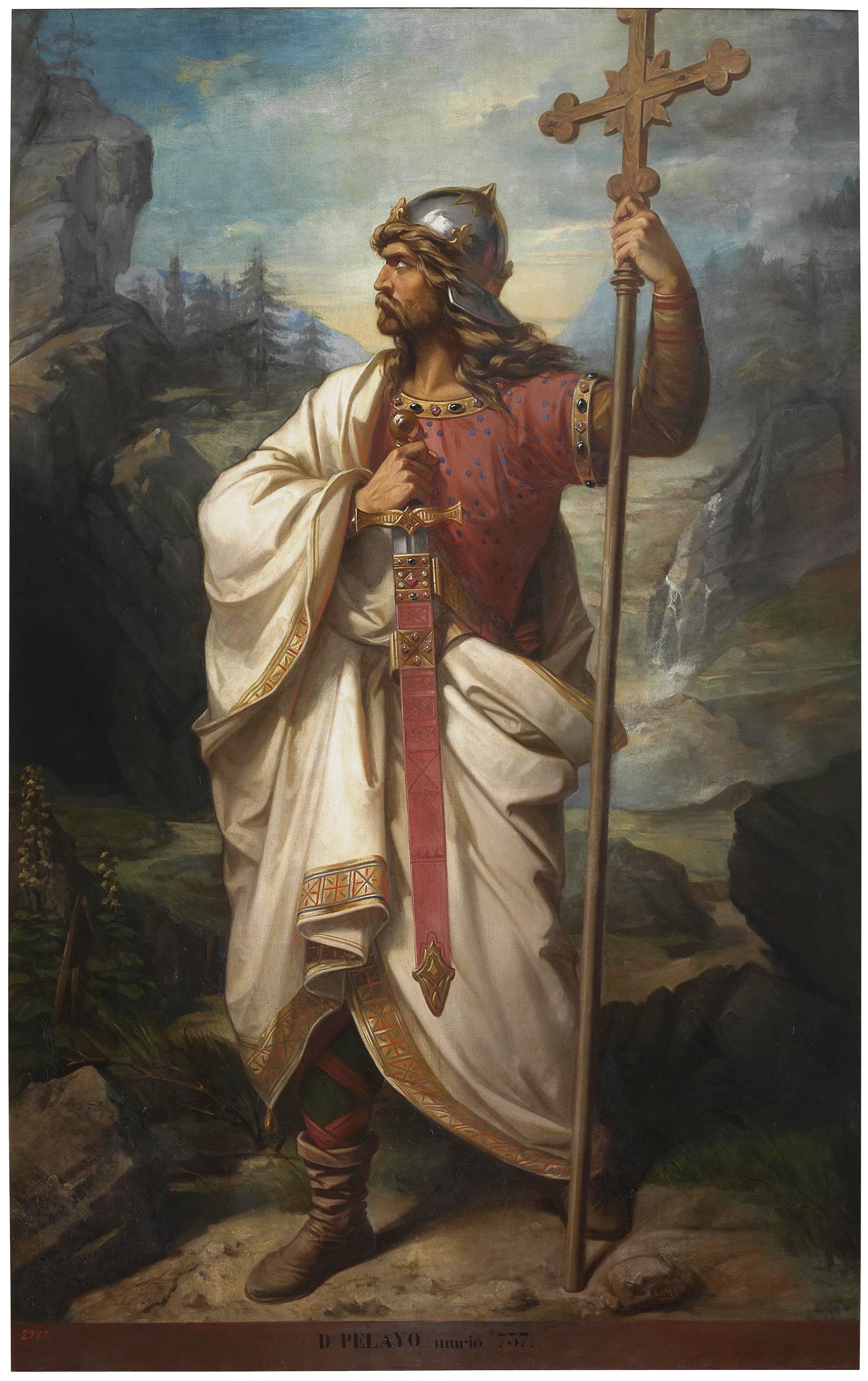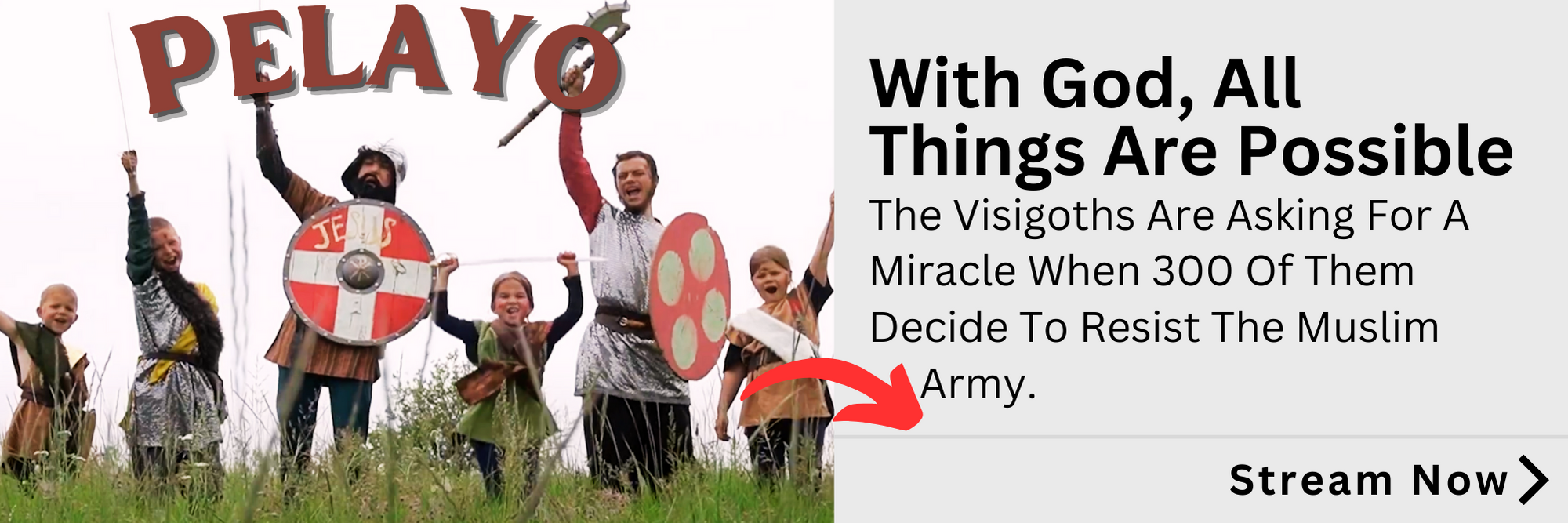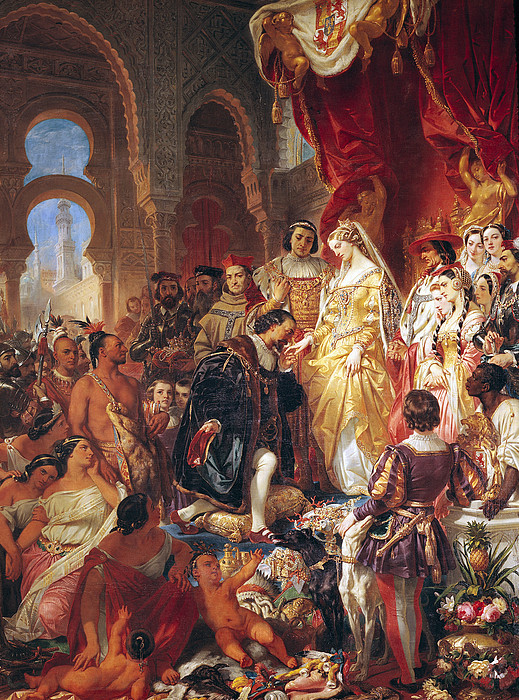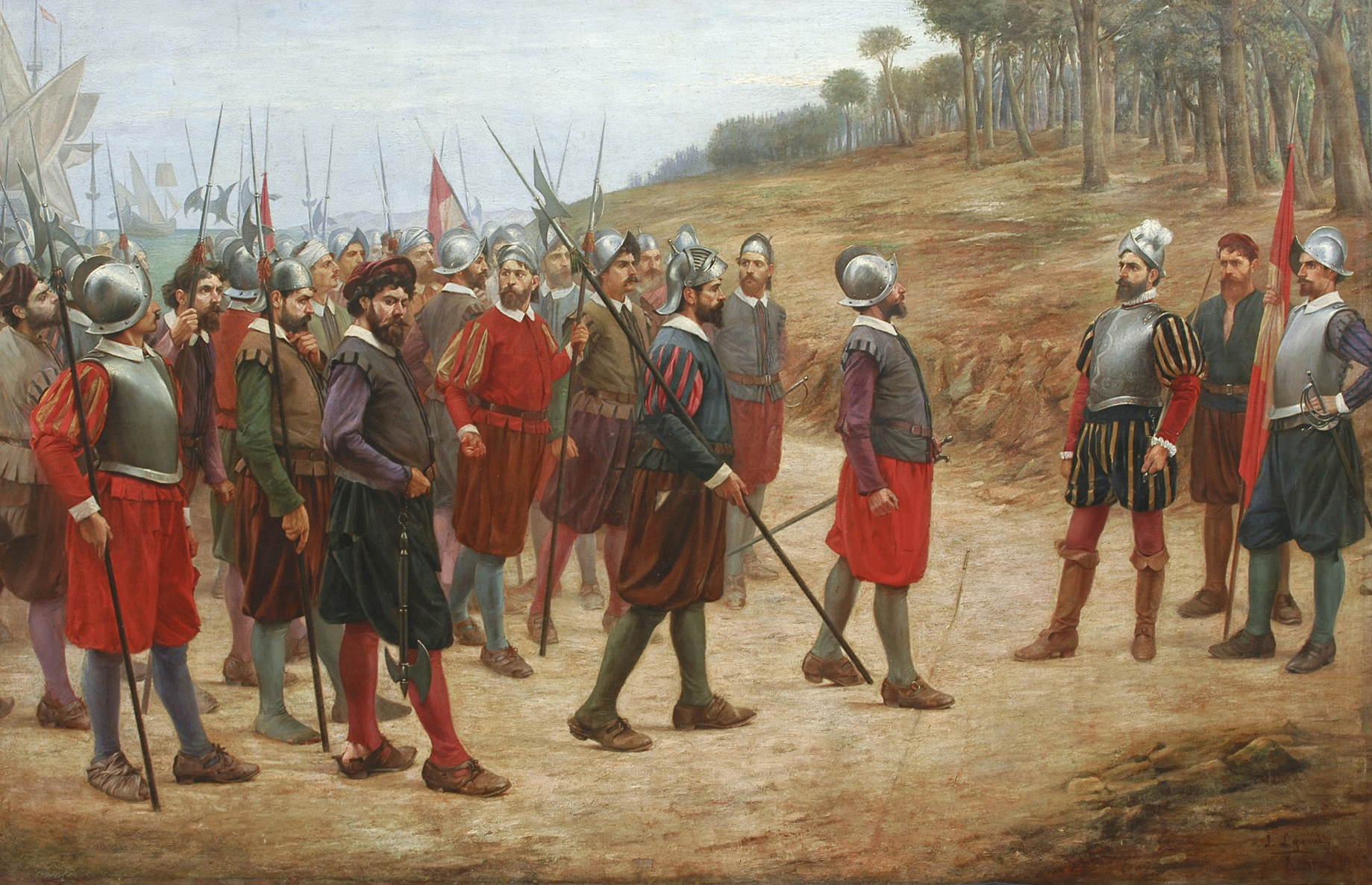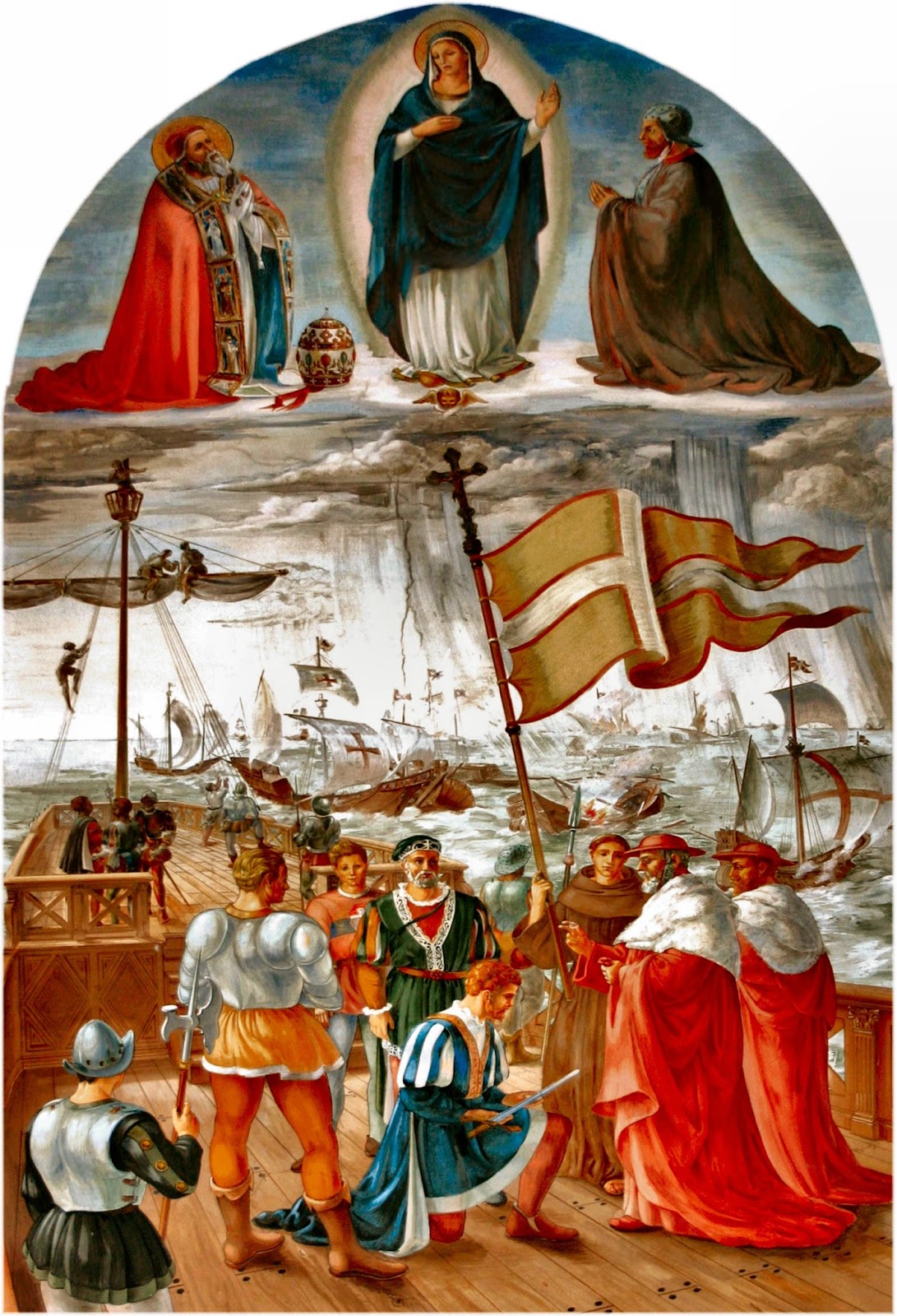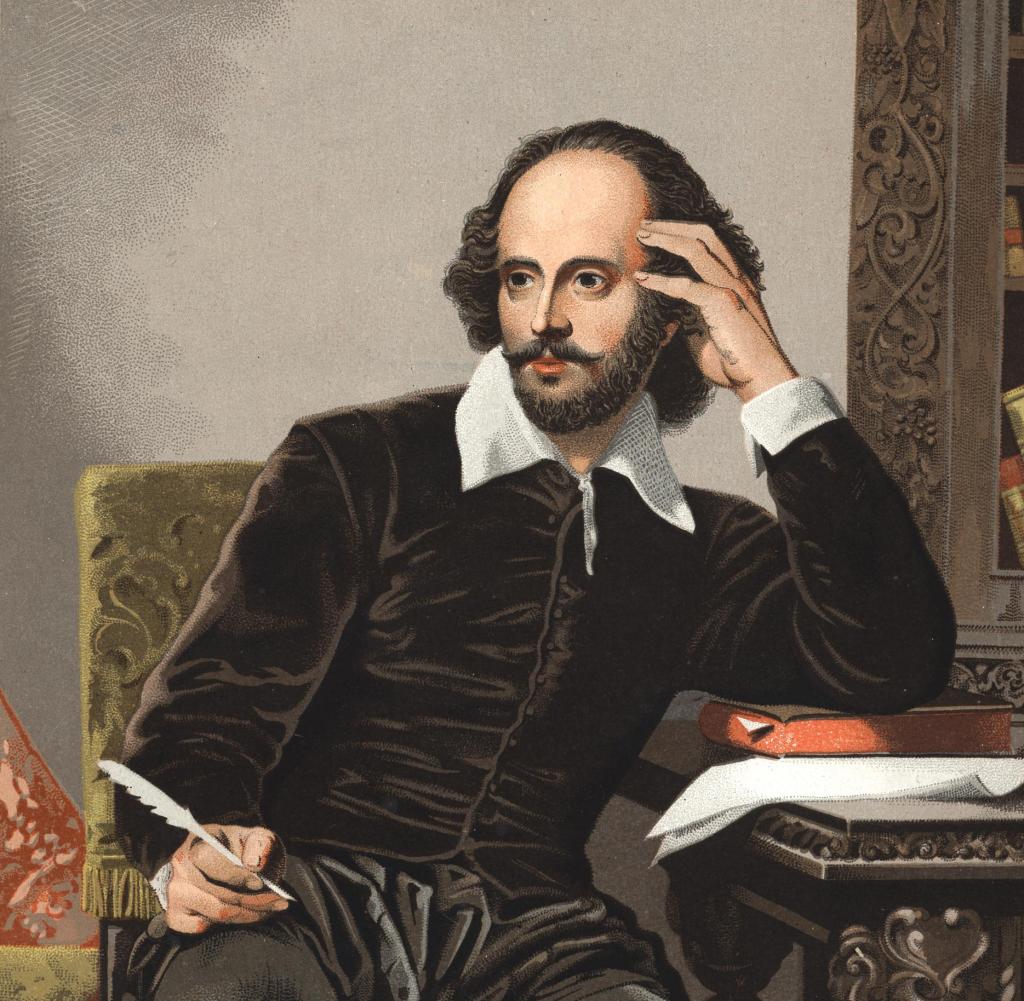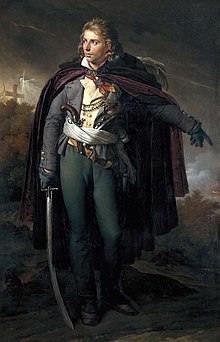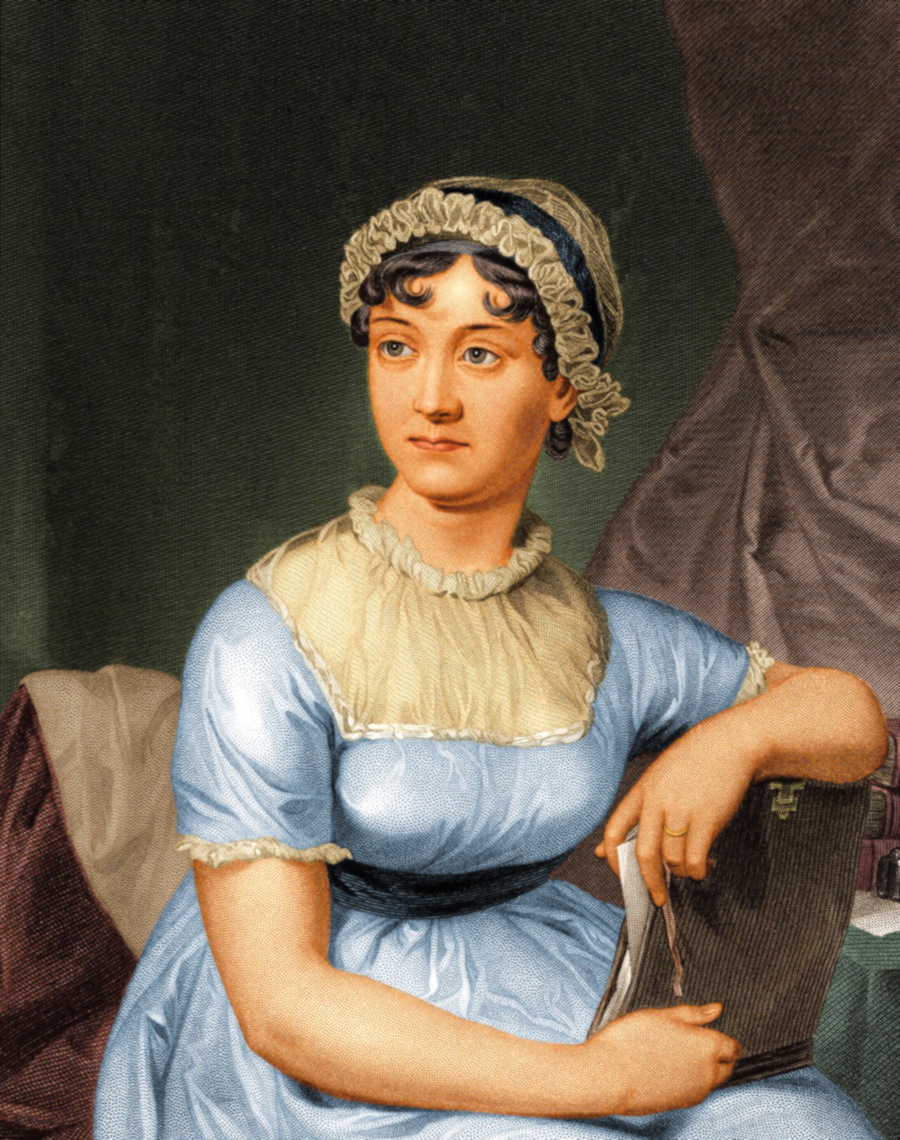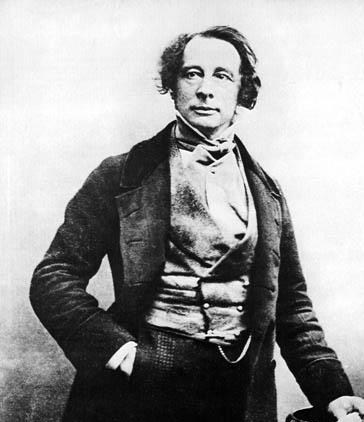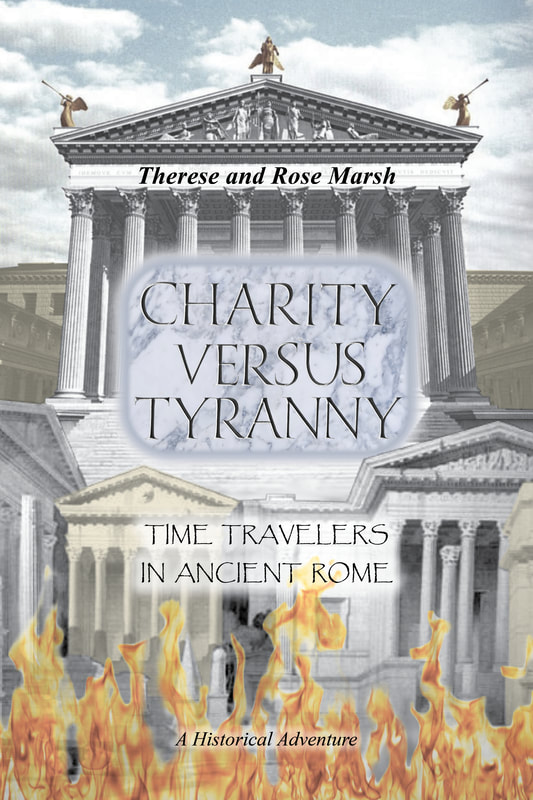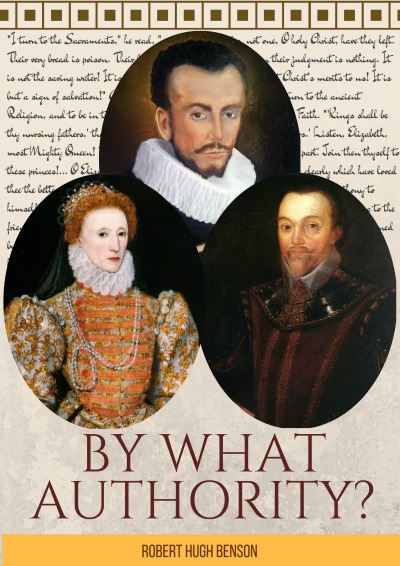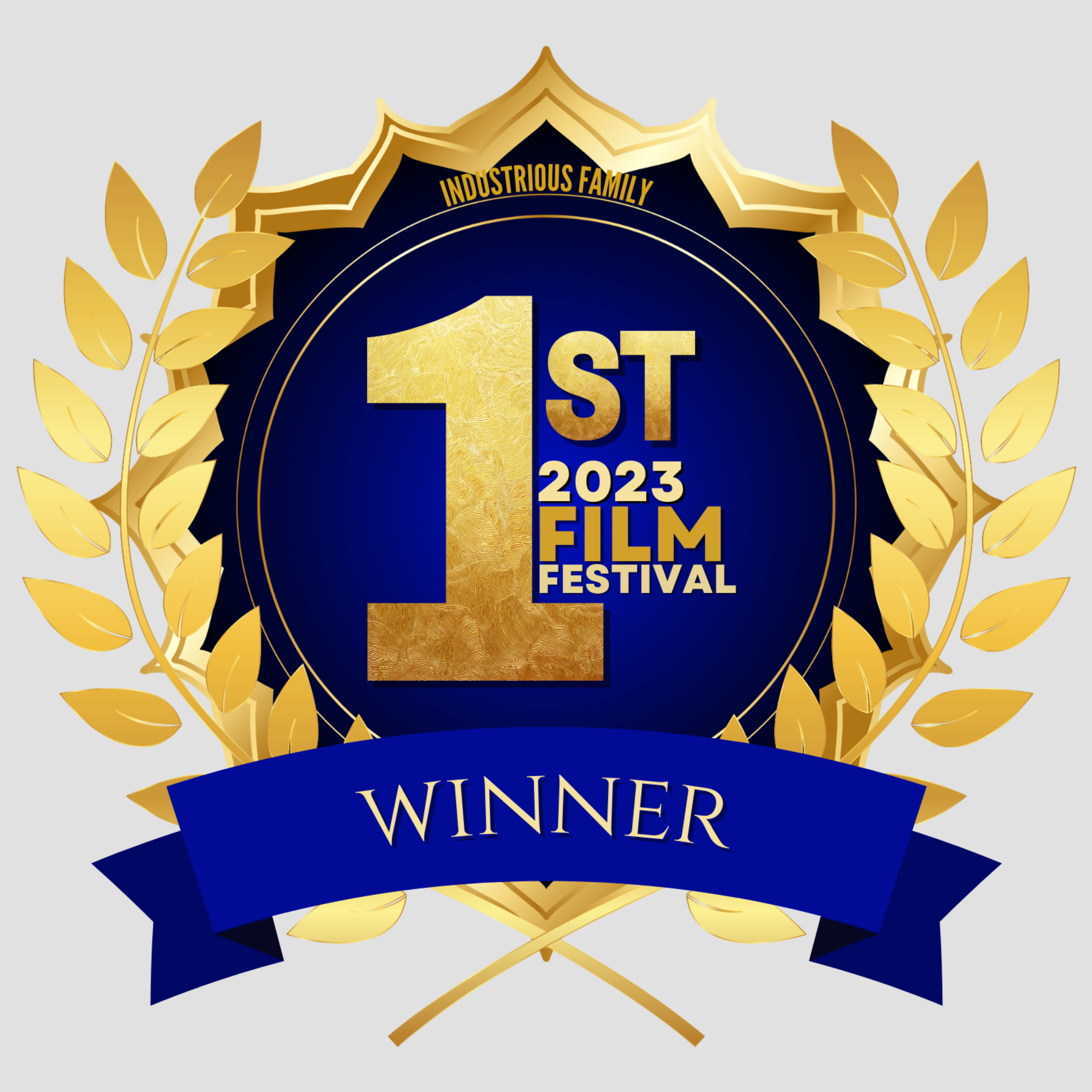- Home
- The Importance Of Good Stories
- Heroes From History
Those Who Left Their Mark On The Past As The Comet Leaves Its Tail Are Those Who Fill Their Places Among The Most Important People In History
The most important people in history were heroes, movers and shakers, gett'er done people. A handful of important people were great military commanders, national champions and those who saved their nations. Some were scientists who made amazing discoveries, some were explores who discovered continents. Others set new trends, cultivated new languages, and were geniuses in their fields. Here are only a few of the most important people in history.
The Most Important Person In History Is Unquestionably The God-Man, Savior Of The World, And Lord Of History: Jesus Christ
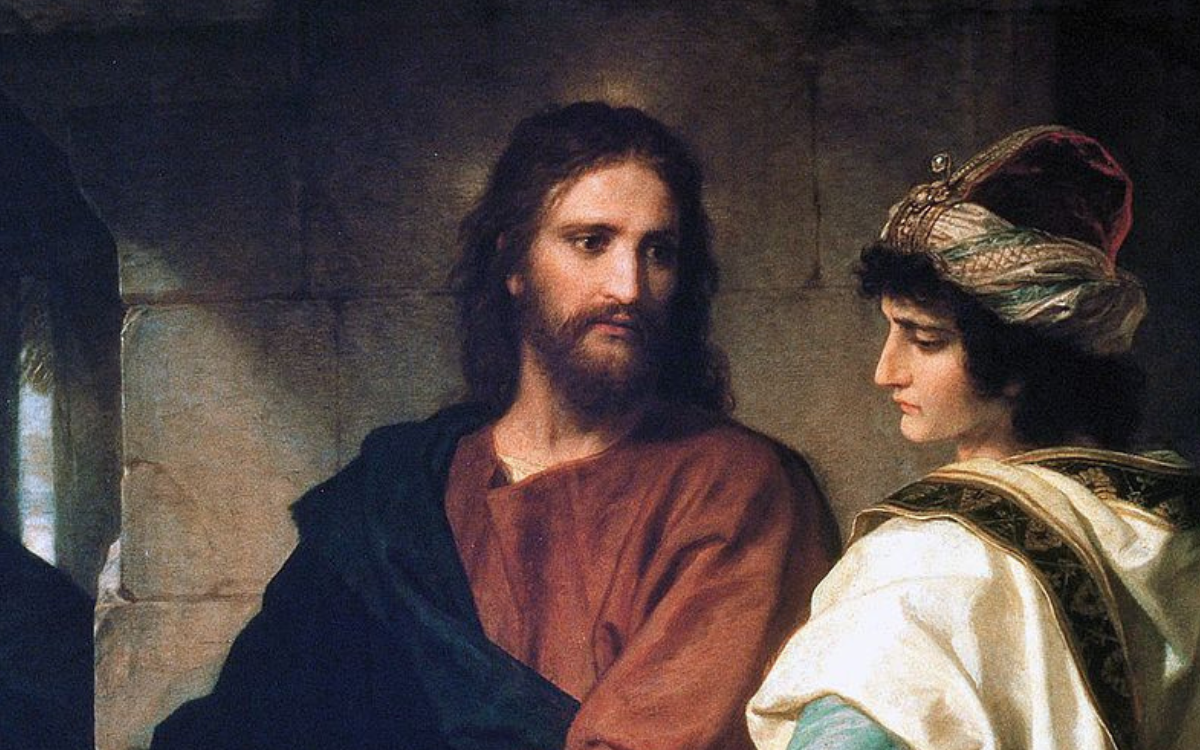 Jesus Christ
Jesus ChristWhat we admire in all men is because we admired it first in one Man: Jesus Christ the Savior of the human race Whose love is infinite, His honor unspeakable and His power almighty.
Only the sacrifice of Himself would appease the justice of God.
Promised to Adam and Eve from the creation of the world, this Bridegroom was sent to invite the guests to the feast only to be killed in the act.
His death was not even necessary for the salvation of mankind. Christ's willingness to die as proved in the agony in the Garden was enough to move the Father to forgiveness.
But to prove this love of the world, Christ needed to be raised up to display the furnace of Love. Though He came with the sword and calming vengeance was His alone, fulfilling every prophecy, He set the example for the fullness of life.
Of course there are countless ways of celebrating the Divinity of the God-Man, Easter and Christmas as well as other Catholic feasts throughout the year are wonderful ways of commemorating and adoring Him. And, of course, leading a life keeping ever in mind Catholic values and beliefs is the best way to follow Him.
For God so loved the world as to give his only begotten Son; that whosoever believeth in him, may not perish, but may have life everlasting.
Most Important People In History: Cause of Our Joy, Gate of Heaven And Virgin Most Powerful
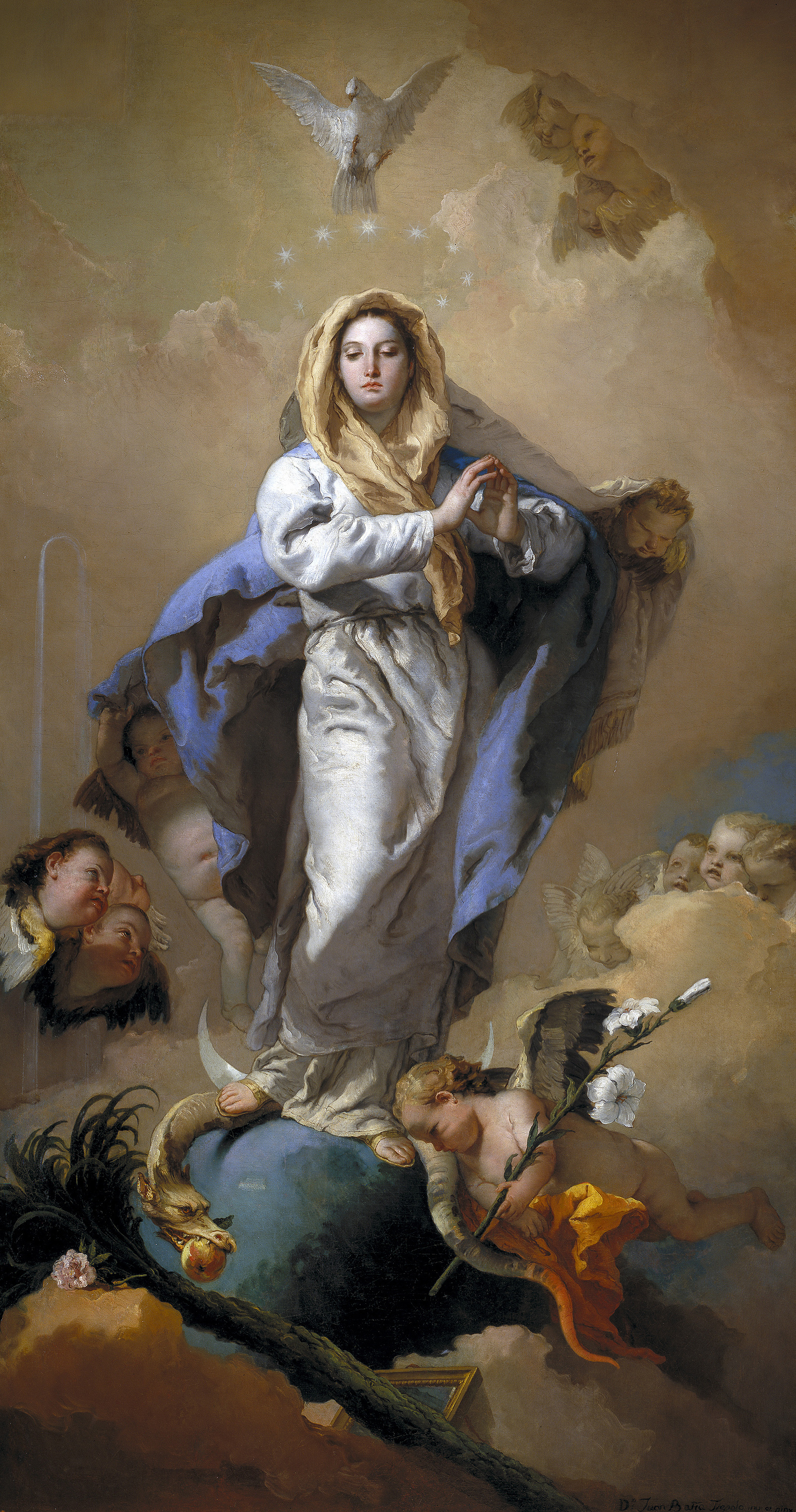 The Blessed Virgin Mary
The Blessed Virgin MaryTo this "Mother of fair love, of fear, of knowledge and of holy hope," the human race owes its salvation. Mary, in the first hour of her life, brought more glory to God than all the saints of the old Testament.
Mary's Immaculate Conception was the foundation of all her graces. In her were made perfect the obedience of Abraham, the chastity of Joseph, the patience of Job, the meekness of Moses, and the prudence of Josue.
Mary began her journey along the road to perfection at a height to which other saints arrived at only at the end of a long life of saintliness.
The angels and prophets hung breathlessly on Mary's Fiat. On the feast of the Annunciation, the Word became flesh and humbled Himself to walk and dwell among us.
Mary's most glorious title "The Mother of God" explains all her glories, her sanctity, and her honor.
Words cannot describe the unspeakable anguish that rent the immaculate heart of Mary as she looked upon her Divine Son hanging on the cross. It was a motherhood of sorrow that she suffered for our sins. This deep sorrow is faithfully told in the film The Passion of the Christ, the best movie in our opinion ever made.
After the Ascension of Our Lord, Mary was cared for by St. John the Evangelist. As death could not touch her, she peacefully fell asleep and was assumed into Heaven.
Her sacred body was conducted there by Jesus Himself while the heavenly court welcomed the Mother of the Divine Word with songs of triumph.
Inspired by content from the Angelus Press 1962 Missal
There Has Not Risen One Greater Than The Last Of The Prophets: St. John the Baptist
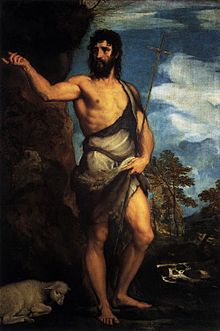 Saint John the Baptist
Saint John the Baptist"I am the voice of one crying in the wilderness, make straight the way of the Lord!"
Our Lord Himself put His cousin John's name on the list of most important people in history when He said: "Verily I say unto you, among them that are born of women there has not risen a greater than John the Baptist."
The Church celebrates the days on which saints died. The Church only celebrates the birthdays of those born without original sin. St. John the Baptist holds this honor right alongside Our Lord and His Virgin Mother.
He has enjoyed this privilege since the Visitation of Our Lady to her cousin Elizabeth when, at her greeting, St. John leapt in his mother's womb and was cleansed of Original Sin. This wonderful example of the manifestation of life in the womb was triumphed when Roe v. Wade was overturned on the feast of the nativity of this saint.
The Stories Of Old Testament Heroes Not Only Teach Great Historic Lessons And Warnings But Their Telling Encourages Us To Be Heroes, Too
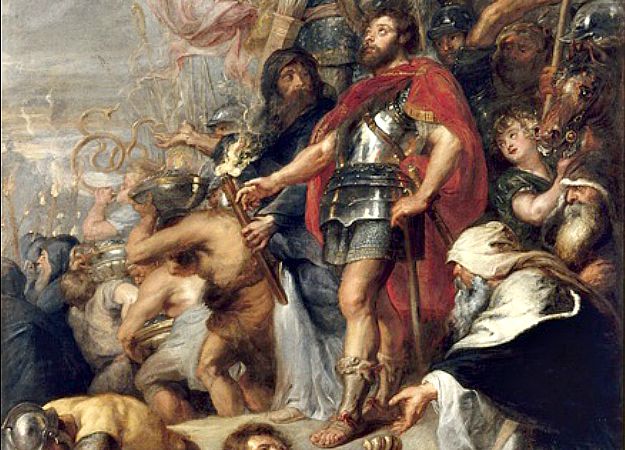 Heroes Of The Old Testament
Heroes Of The Old TestamentOf course, all the figures of the Bible are important people in history. So important are they, that the last few days leading up to Christmas are dedicated to preserving the memory of their roles in the salvation of the human race in the tradition of the Jesse Tree.
St. Augustine shares the beautiful idea that the Jews of the Old Testament were the teachers of Christianity as they carried a book or a teaching that they themselves did not understand.
In his novel, Fabiola, Cardinal Wiseman adds a small nod to this analogy when he portrays an illiterate servant carrying a young Christian boy's schoolbooks. Although he carries a book filled with great learning, there is no way the servant could even understand the magnitude of the work he holds.
Some inspiring read aloud bible stories from the Old Testament are The Maccabees, Ruth, Tobias and Esther.
We have recently enjoyed some PureFlix originals such as Samson and The Book of Daniel.
King Of The Macedons, Pharaoh Of The Egyptians, King Of The Persians And Lord of Asia, Alexander The Great Is The Pagan Hero Who Freed The Jews From The Babylon Captivity And Thus Helped The World Prepare For Christ
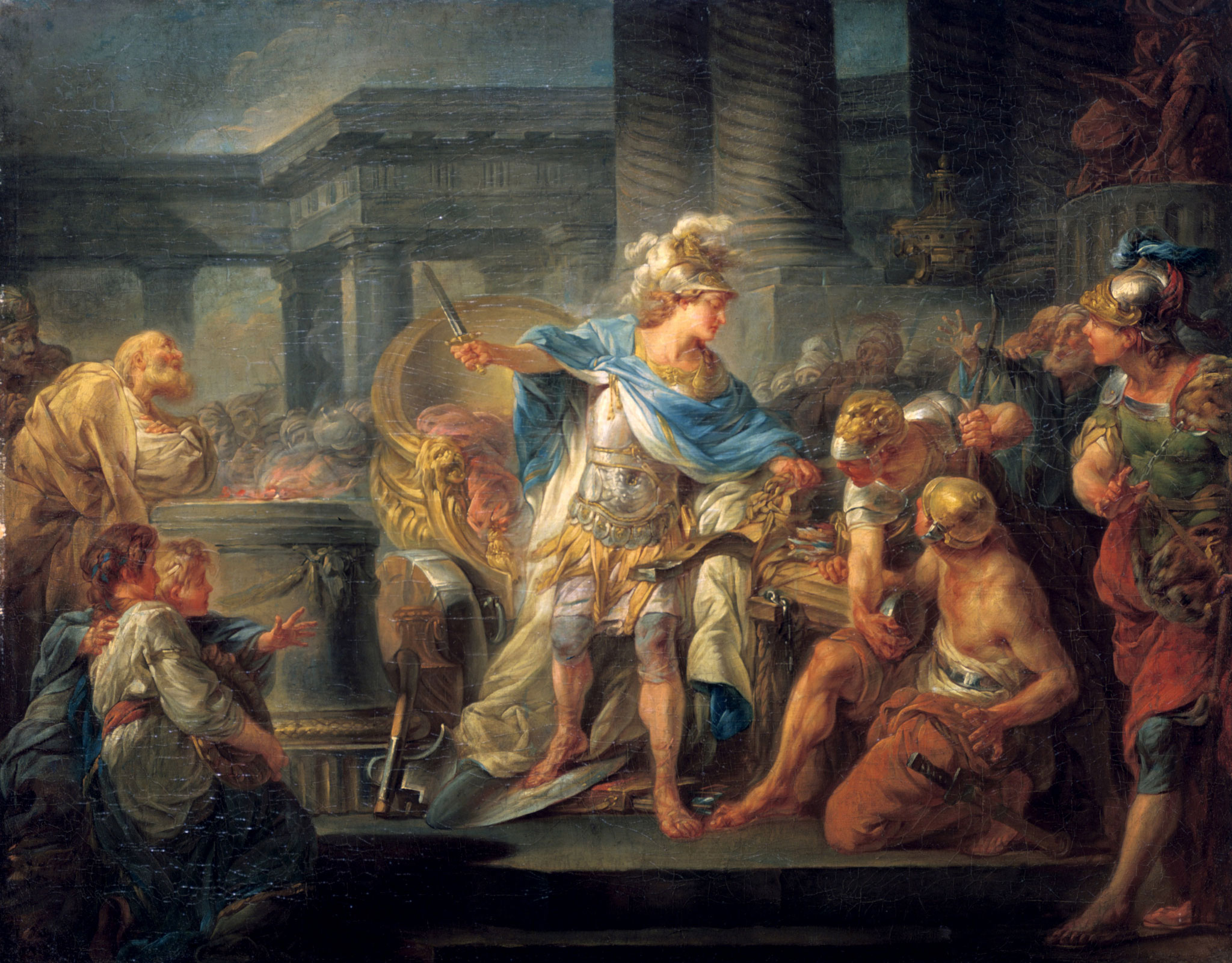 Alexander the Great
Alexander the GreatOne of the most important people in history is Alexander the Great. This Greek conqueror is mostly known for his sheer will power to win. First the King of Macedonia, next Pharaoh of Egypt, then King of Persia and finally Lord of Asia.
Alexander the Great famously ran his horse to exhaustion in his short-lived but massively expansive empire. His own men refused to go any further than the Danube and the young leader was forced to retreat his march on taking over the world.
Slightly cruel but romantic at the same time, this general was moved to tears at the shores of India because there was no more to conquer.
Alexander plays an important role in the salvation of mankind as he ended the Babylonian Captivity and allowed the Jews to return to Israel. Alexander the Great died at the premature age of 32.
From The Greatest Persecutor of Christ's Followers To The Biggest Proponent For Him, St. Paul Teaches Us That Your Past Need Not Determine Your Future
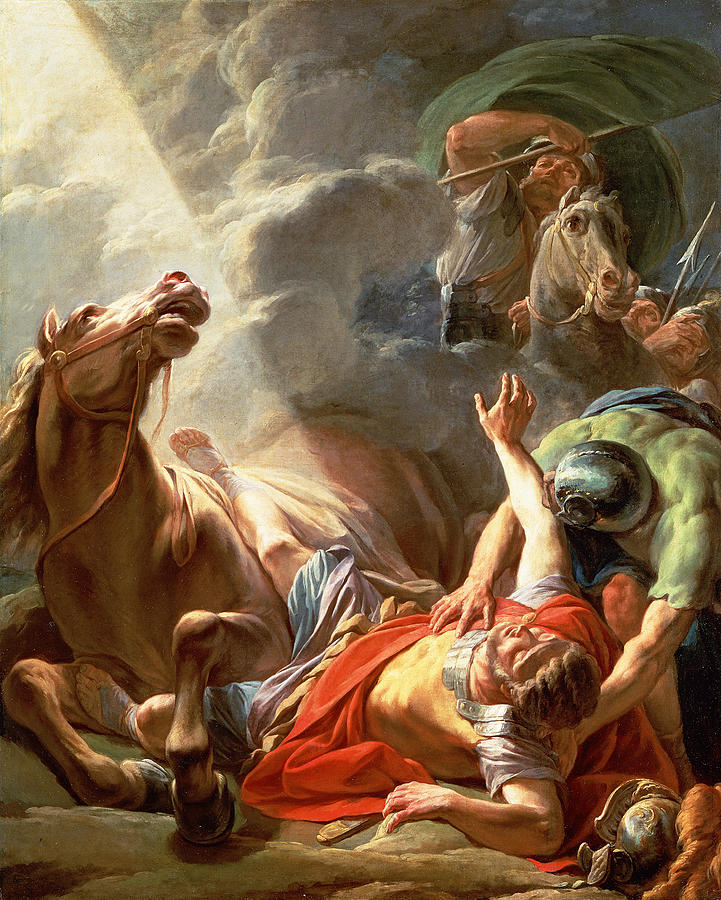 St. Paul the Apostle
St. Paul the ApostleSt. Stephen is another important person in history as he was the first martyr. But the radical Christian persecutor, Saul, also deserves to have his name in the ranks.
Formerly known as Saul, Paul was an adamant persecutor of the early Christians. While on his way to Damascus, he was struck off his horse by a sudden dazzling light. He heard a voice ask him, "Saul, why do you persecute Me?" When the vision was gone, Paul was blind.
After being cured, he would go on to be the Apostle of the Gentiles, writing many letters which fill not only the Bible but also have their special place in every Mass.
Perils by land or sea could not dampen his courage. Cold and suffering could not dull the tenderness of his heart. At last, like St. Peter, he consecrated the soil of Rome with the blood of his martyrdom.
He has left the world fourteen Epistles which have become a fountain-head of the Church's doctrine and the consolation and delight of her greatest saints. Speaking of fountains, tradition tells us that when St. Paul's head was struck off it hit the ground in three spots and fountains sprang from each spot.
St. Chrysostom asks about St. Paul, "How comes it that he lives in all men's mouths throughout the world? Is it not through the virtue of his Epistles?" Nor will his work cease while the race of man continues.
Even now, like a most chivalrous knight, he stands in our midst and takes captive every mind and brings its thoughts to the obedience of God.
Adapted from the Little Pictorial Lives of the Saints
Son Of Saint Helena And Founder Of Christendom, Constantine Who Saw The Cross In The Sky And Was Given Victory Under This Christian Standard
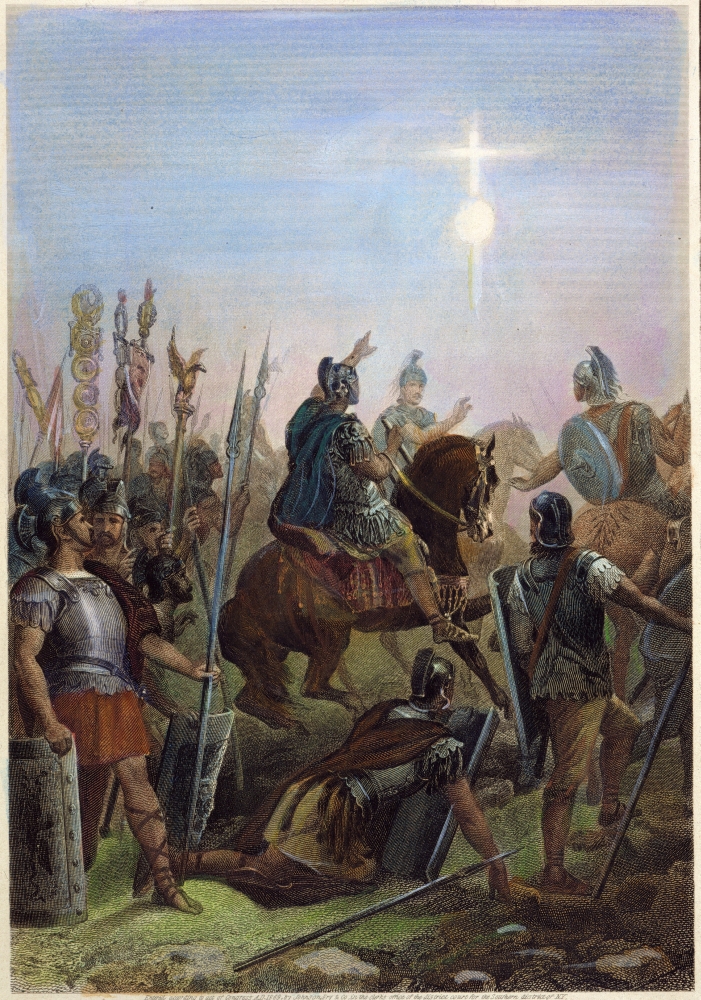 Constantine
ConstantineOne of the most important people in history is the Founder of Christendom, Constantine. This admirable emperor and exceptional military commander is the ideal example of how God uses even non-Christian men to bring Him greater glory and honor.
Though born of a saint, Contantine postponed baptism until his deathbed. But God chose him, an imperfect instrument, to be the means through which pagan Rome would fall and become the center of Christendom.
During the last years of the Roman Empire, there were three caesars. Two of them were low moral pagans and the third was the young Constantine who was under house arrest to one of the other ceasars. He was given release upon a weak moment of his captor, and Constantine ran for his life and for the future of the Empire.
No one could pursue him because he had chosen the best horse and had hamstrung the others. Within the next few years God would take care of all Constantine's enemies and the road to ruling as the only Augustus was open to our young hero.
Advisors urged Constantine not to attack Rome but an Authority far greater than these called him to action. Shortly after this, Constantine saw a cross in the sky and the words: In this sign you will conquer.
He ordered his men to carry the Chi Rho, or christogram, on their shields into battle and these Christ inspired words became his standard. Then putting his trust in Christ, Constantine marched on Italy. He personally led the attack on the Ceasar Maxentius.
When he marched in triumph into Rome, he did not issue the order to slaughter his enemies which was customary among pagan conquerers. Instead, he called the Edict of Milan through which religious freedom became law. For the first time in history, Sunday was made into a festival day, gladiatorial fights were forbidden, and crucifixion was abolished.
Constantine had set up a society where the laws conformed with the laws of God and honored Christian principles. This kind of society is called Christendom and that makes Constantine the founder of Christendom.
Constintine's mother, St. Helena, surely deserves much of the credit for this official victory of Christianity. Like St. Monica, her faith and patience were rewarded both on earth and now in Heaven.
The Apostle To The Emerald Isle, St. Patrick, Lit A Flame That Burned For Centuries
One of the most important people in history is, beyond a doubt, St. Patrick.
This saint can boast of a unique childhood, to put it mildly, after being captured by pirates and taken as a slave to Ireland.
After a short life as a shepherd, God revealed in a dream to our saint to return to his own land.
After his escape, God told Patrick that He had great work for him in the conversion of Ireland.
St. Patrick forsook his family, sold his birthright and dignity to help strangers and consecrated himself to God.
He returned to Ireland where he devoted himself to the salvation of the Druids.
Although it was certainly no piece of cake, he succeeded in penetrating every corner of the island, baptizing infants, ordaining priests and consecrating virgins.
Due to St. Patrick's vigilance, Ireland came to be known as the "Land of Scholars and Saints".
The Pope That Stood Up To The Scourge Of God, Pope St. Leo The Great, Certainly Deserves Mention On This List Of Most Important People In History
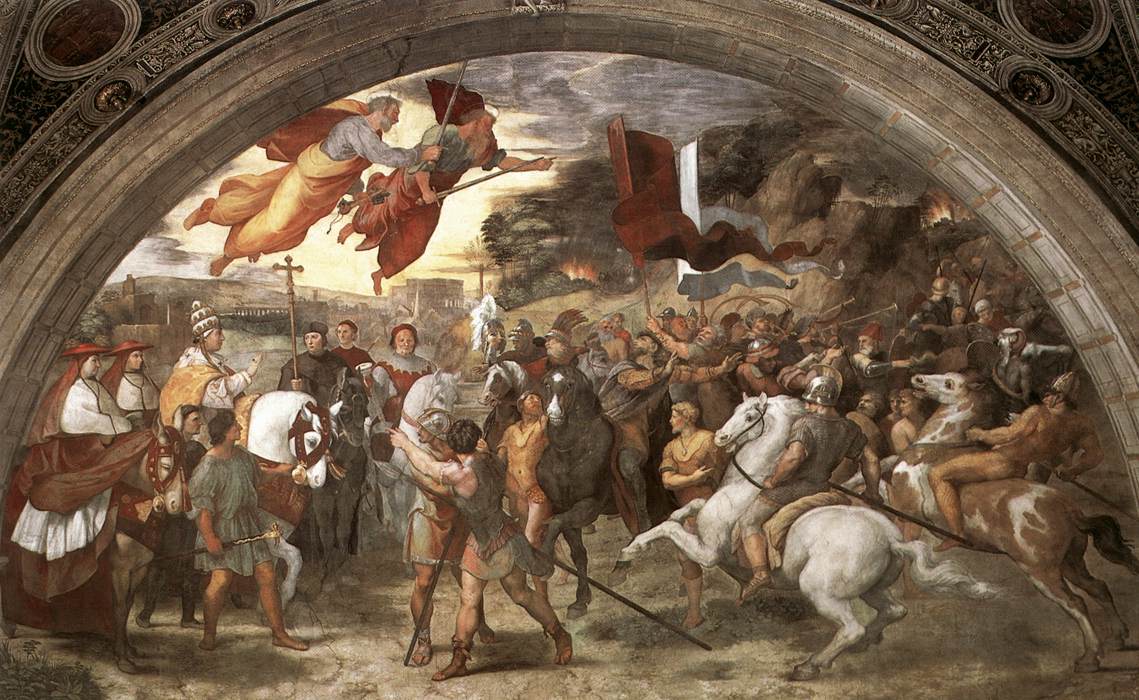
Pope Leo the Great could also be given the title "Tamer of the Scourge of God". Or was the victory really owed to St. Peter? Whichever the case, Pope Leo showed great courage by leading a procession to meet Attila the Hun at the outskirts of Rome. The barbarian planned to establish an Asiatic Empire which would overthrow the Roman Empire. To achieve this, of course, Rome had to fall unto his hands.
Attila saw a long procession approach his battle camp. From the long line of white there floated across the river sounds of song and prayer. Attila shouted to the leader to reveal his name. The answer was returned "I am Leo, the Pope."
The two men met but no one knows what passed between them. Leo returned the powerful defender of Rome and Attila peacefully retreated.
Attila was deeply impressed with the pope and felt that here was a ruler with greater authority than his own.
As legend goes, Attila told his men that he saw a fisherman carrying a sword behind the Hoy Father during their interview and it was the fear of this man that made Attila rethink his conquest of Rome.
Thanks to the bravery and confidence of pontiffs like Pope St. Leo the Great people understand better what Our Lord meant when He told Simon the Fisherman, "Thou art Peter, and upon this rock I will build My Church."
The Hand That Stayed The Muslim Conquest In Spain With Just 300 Men, Pelagius Of The Asturias
This hero king of Spain can hold his own with the giants of the world.
From the early Visgothic tribes of the Asturias mountains comes this little known Christian ruler.
Pelagius resisted the Muslin tyranny under King Roderick and was captured by his Moorish conquerors.
Pelagius escaped after hearing that his sister had been taken by the sultan and been abducted into his harem. He retreated to the Asturias Mountains and intended to hold this little bit of Spain against the Muslims.
The Moors sent Bishop Oppas to him to talk him into surrender but Pelayo refused. The Battle of Covadonga ensued in which the Spanish won despite being grossly outnumbered and against great odds.
This event marked the first victory over the Moors during the invasion. Pelagius' kingdom was only a 12 mile radius but the Moors had lost their strong foothold over their heaven on earth.
The Giant Leader Of The Franks, Hailed As The Patrician Of The Romans, And First Holy Roman Emperor, Charlemagne
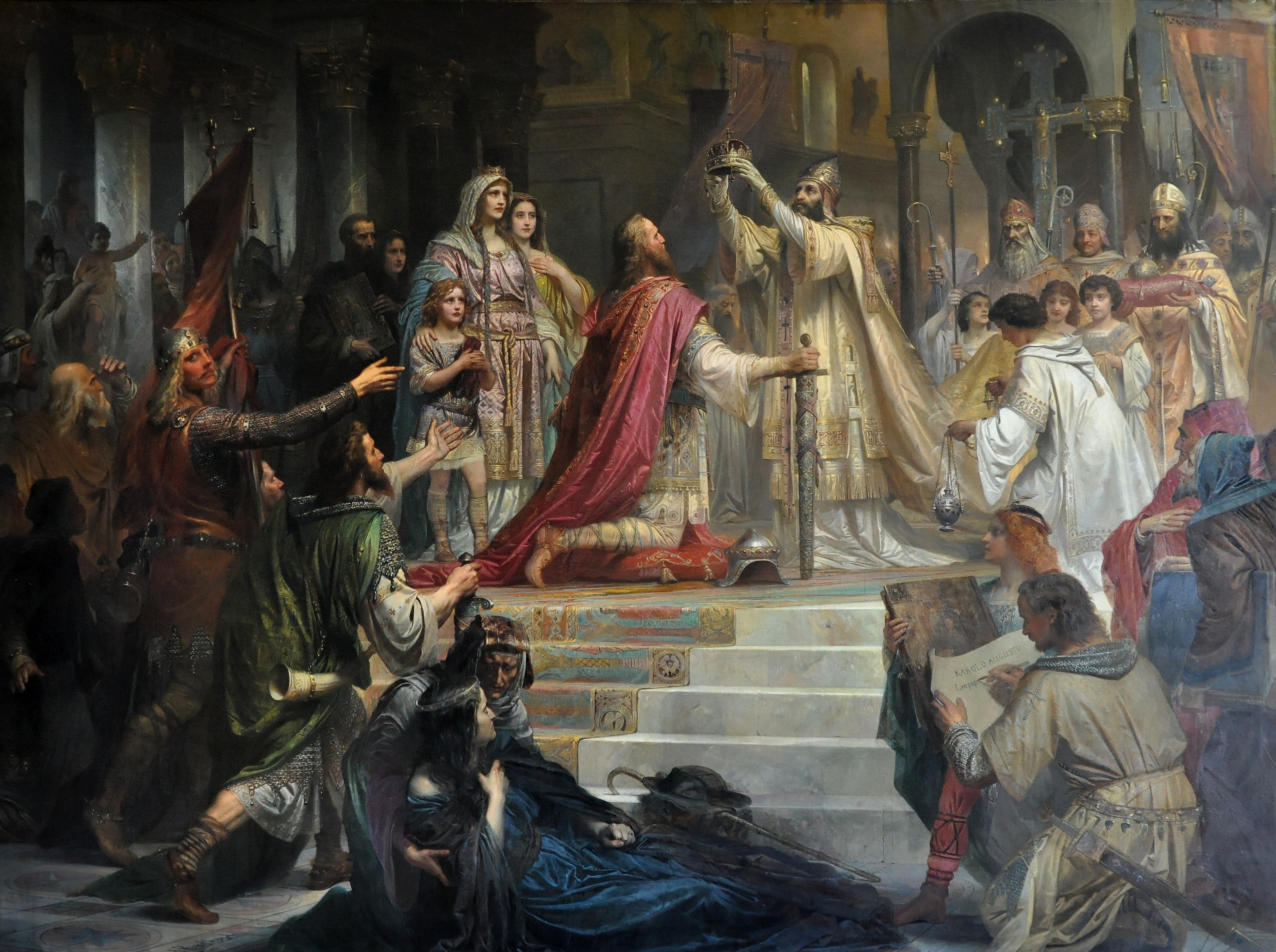
Just as Constantine was the founder of Christendom, Charlemagne was the builder of Christendom. Wherever historians document Charlemagne they never fail to mention the massive stature of this man which was once said to be seven feet tall.
This King of the Franks crossed the Alps to save the pope from the Lombards. After his victory he was hailed as King of the Lombards, to which the Pope added, "Patrician of the Romans."
On Christmas Day, 800 A.D Charlemange was crowned by Pope Leo III, as the Holy Roman Emperor.
He would become the personal defender and protector of the Vicar of Christ. He would be the patron of learning and of the arts. But more importantly, he was destined to bring together the old and the new, the Romans and the barbarians, the Church and the state, and to weld them together into the beginnings of the Europe that we know today.
The Holy Roman Empire was the beginning of a relationship which solidified the role played by the spiritual head which was the pope and the temporal head, the emperor. The emperor recognized and respected the authority of the pope and acknowledged that his power came from God.
His subjects did likewise. This system created the most free and the most just society the world had ever seen.
Charlemagne's fame lived on and grew to epic proportions as it became clear that no one else could even preserve that which he had built.
The Man That Dared To Use His Pen To Paint Images Of Hell, Purgatory, And Heaven...And Dared To Populate Them

One of the most important people in history, and maybe the most important poet of all time is Dante Alighieri.
He is the greatest of all Christian poets and the Father of the Italian language.
His masterpiece, The Divine Comedy, was created with the purpose to show how men's actions appear in the sight of God.
He can easily be considered the Father of Poetry as it is recorded that he invented writing in verse.
Experience God’s justice in hell, His mercy in purgatory and His endless love in paradise all while satisfying your curiosity about the context of The Divine Comedy by Dante Alighieri.
Christopher Columbus and Queen Isabella of Spain: Godparents Of The New World
If a beautiful statue of two greats gets ripped out of the California capitol building, they must be two of the most important people in history.
Queen Isabella the Catholic, and Christopher Columbus each played a very important role in the discovery of our own nation. After finally ending Spain's centuries-old fight with the Infidel, Queen Isabella was the only European monarch open minded about Culumbus' absurd theory about reaching India by going west.
But these two heroes' honor and memory are at stake. Isabella is remembered as the bloodthirsty, heartless reconquista Queen and Columbus is not even honored as a great discoverer but rather as a greedy slave driver.
Continue reading an accurate story of this discover who is wrongly painted by modern historians.
Conqueror Of The Aztecs And Destroyer Of The Devil Gods, Hernan Cortes Is The Hero Of New And Old Spain
At an around-the-world potluck, someone who I was sitting with announced that the two greatest things that Spain gave the world were donuts and Hernan Cortes. Agreed.
This Spanish conquistador famously scuttled the ships when he arrived in Mexico demonstrating that there was no turning back for him or his men.
He set foot in the New World to bring the light of Faith to the human-sacrificing Aztecs. His arrival fulfilled Aztec prophecy that a certain Aztec leader was to return to bring justice at a time when the Indians' depravity was at its height.
Cortes immediately set about destroying the temples which were consecrated to the devil. The Aztecs surrendered to Cortes and he continued his mission of converting all Mexico and bringing these heathens the light of truth through the gospel.
Continue reading about the life, achievements, as well as the desecrated memory of the hero.
Don John Of Austria And The Queen Of The Most Holy Rosary's Victory Mark An Important Date At The Great Historic Battle Of Lepanto Defeating The Turks Once And For All
Cardinal Nicholas Patrick Wiseman tells us in his novel Fabiola that there are crucial days in the life of man and of mankind. These are the days "in which a different result might have influenced the social or political fate of mankind. It is probable that Columbus could look back on not only the day, but the precise hour the decision of which secured to the world all that he taught and gave it, and to himself the singular place which he holds among its worthies."
The Cardinal goes on to describe how even the human soul, like Columbus, has its day. The history of the world has had a series of crucial days. A day in which a different result might have influenced the remaining course of history had it gone down differently.
The Battle of Lepanto was such a day.
Our hero in this event has been dubbed "the last knight of Europe" by Chesterton, he is the bastard prince Don John of Austria whose name should be as familiar as Columbus'.
The Bard Of Avon And Entertainers Of Kings, William Shakespeare And Some Of His Most Notable Works
This famous English poet and playwright changed the way we view the stage forever.
His works still have an impact today. His countless iconic characters are used as prototypes. It is well known that he wrote several plays for the sole entertainment of the monarch of his nation.
The Merchant of Venice, Macbeth and Romeo and Juliet, are only a few of his most famous works.
Peasant General And French Hero Jaques Cathelineau And The War Of The Vendee And Their Valiant Effort To Stop The Revolution
In the western part of France lies the region which is known as the Vendee, made famous by its resistance to the French Revolution. Armed with rosaries and pitchforks, displaying a badge of the Sacred Heart, these peasants gave the Revolutionaries a punch in the nose and let the nation know that they would not go down without a fight.
The most famous of these "rebels" was Jacques Cathelineau, also called "The Saint of Anjou" or the peddler-general. But every man who took up arms against the new regime deserves to be remembered.
Continue reading their story and how their fight is the same that we face today.
19th Century Emperor Who Took All He Saw Until Famously Defeated At Waterloo, Napoleon Bonaparte
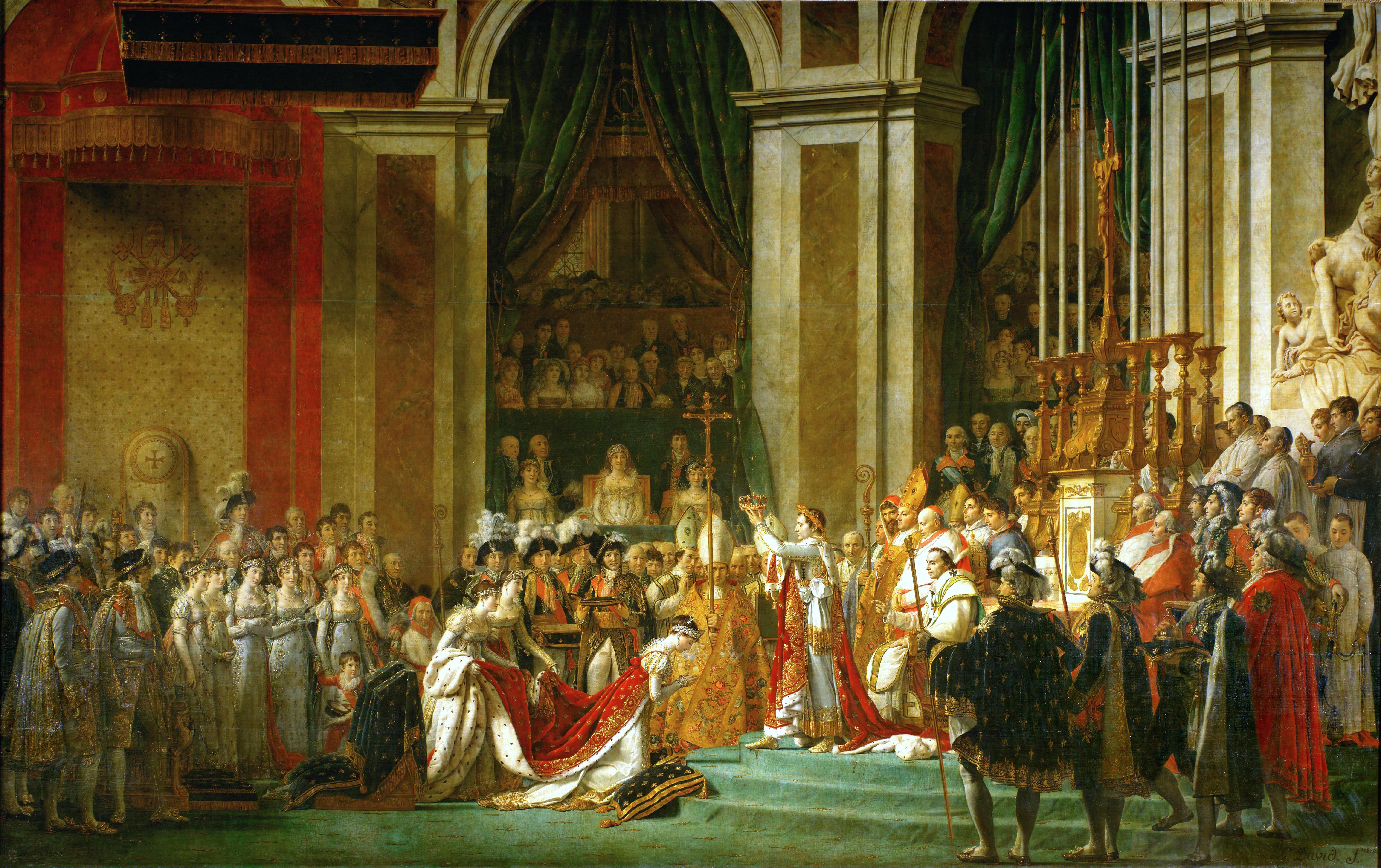 Napoleon Bonaparte
Napoleon BonaparteLike Alexander the Great, Emperor Napoleon Bonaparte went to war with all of Europe and the presence of his power was felt as far away as Russia. He was the product of the godless and lawless nation that France had become in the aftermath of the French Revolution.
Although a man of many faults, on top of his monstrous ambition were Napoleon's genius as a military leader and his skill as a political leader. The combination of these traits proved for a time unstoppable.
Things that he is remembered for are his career of victory after sweeping victory, audaciously crowning himself emperor in the presence of the pope, and his famous defeat at Waterloo.
Banished to the Island of Saint Helena, it seems Napoleon spent a lot of time thinking instead of carrying out his usual characteristic of action. It was here that it is said that he recognized Jesus Christ as God.
The Female Author Whose Works Have Been Enjoyed For Over Two Centuries: Jane Austen
Jane Austen is, perhaps, the most famous author of her time. Her works have been cherished by young women for generation for their adherence to real-life characteristics and situations.
In more recent times, her six major works, Sense and Sensibility, Persuasion, Pride and Prejudice, Emma, Northanger Abbey, and Mansfield Park, have all been brought new life with several film adaptations each. Pride and Prejudice itself has been remade 17 times!
Many Phrases Used In Modern Language Are Actually Descended From The Works Of The Victorian Author Charles Dickens Including Our Great Grandma's Favorite "What The Dickens?"
Shed light on the life and influence of one of the most captivating novelists, well known for the strange phrases that he uses in his works.
Much like Jane Austen's works, many Dickens novels have been given new life in recent years through films, with even a film focusing on the life of the author himself made in 2017.
Complete with a bio, several book summaries and our recommended films, this page most importantly answers the question, who was Charles Dickens? Read more.
Two Of The Greatest Scientists In Modern History Were Born The Same Year, Gregor Mendel And Louis Pasteur
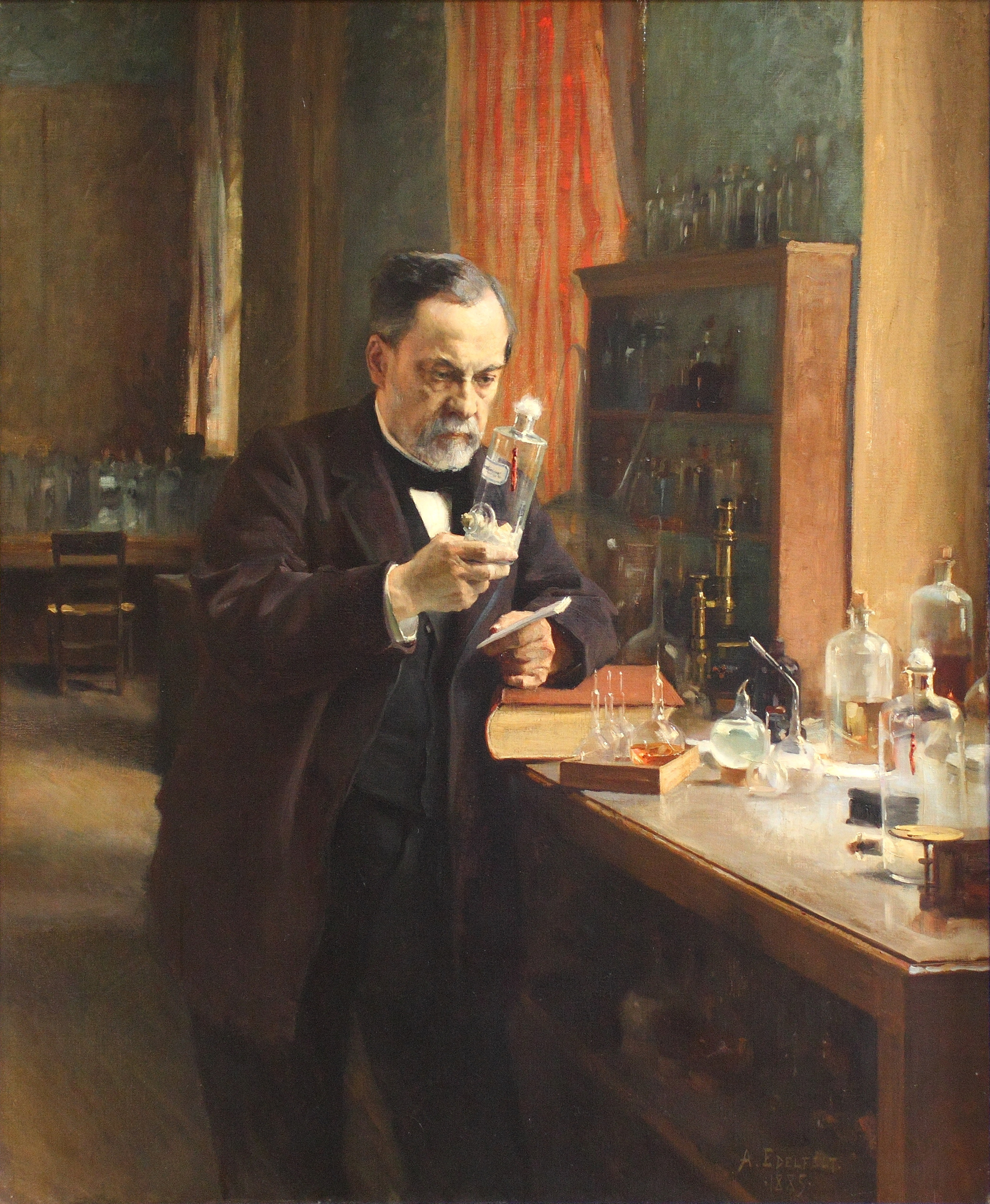 Louis Pasteur and Gregor Mendel
Louis Pasteur and Gregor MendelWe have been inspired by his perseverance and sacrifice which merited him the title, the Father of Modern Genetics, but who was Gregor Mendel? His discoveries about how genes work are so familiar that we may be dulled to the fact that these discoveries were made in a garden by a monk who could not pass a teacher's exam.
In addition to the story of this monk, there is also the story of Louis Pasteur who was born the same year.
By becoming an Industrious Family Films Sponsor you directly support the movement which is rebuilding Christian art.
I'd like to advertise with Industrious Family.
Subscribe To Our FREE Email Newsletter:
What's New At The Studio
-
From Backyard Beginnings to Big Dreams
Apr 15, 25 06:05 PM
-
Meet Christopher Hatfield, Our Fabius in Fabiola — Help Us Reach Our Lenten Goal!
Apr 15, 25 10:48 AM
-
Breathing New Life into Fabiola: The Journey of Writing the Script
Apr 14, 25 02:56 PM
